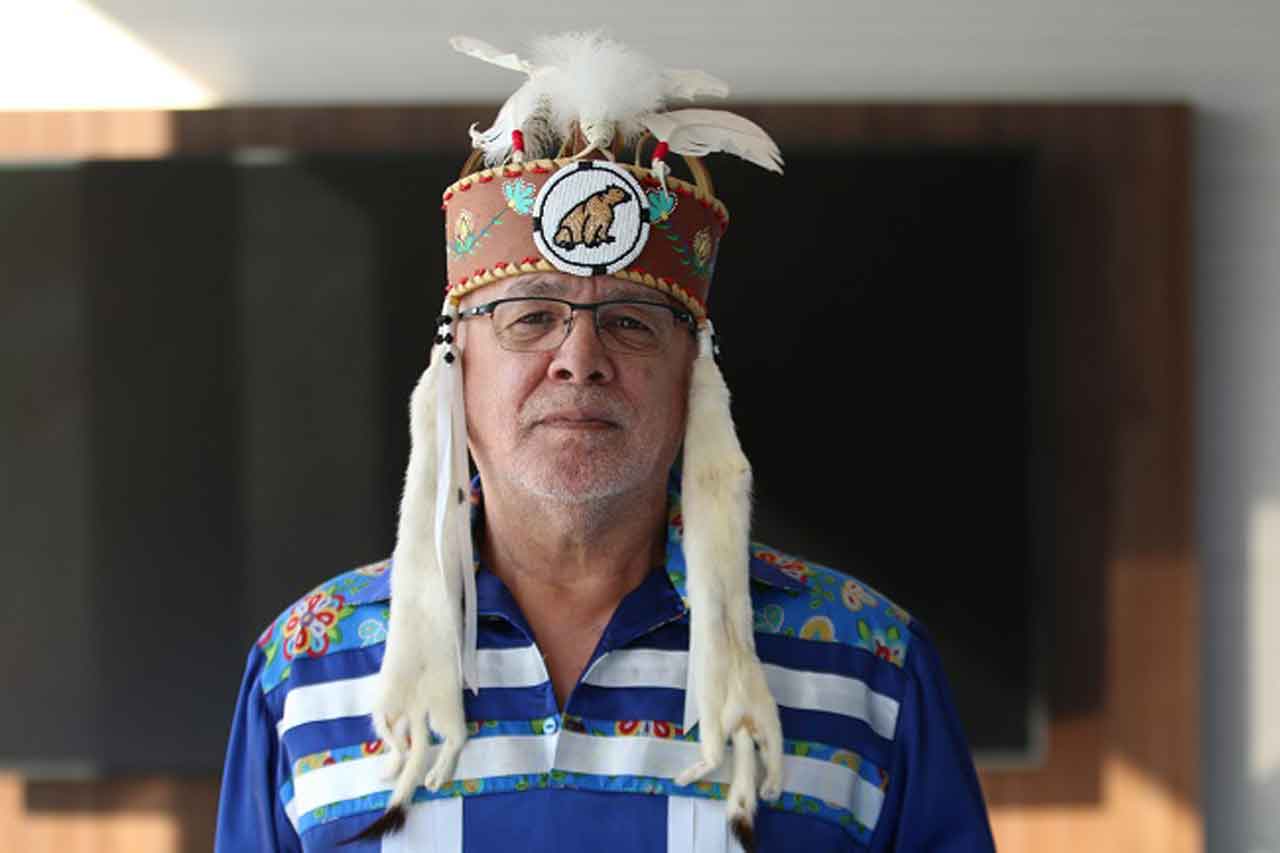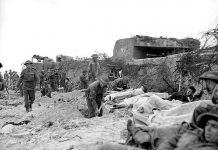On D-Day, June 6, 1944 the beach in Normandy was red with the blood of Canadian soldiers. Canadian trooped landed on that beach that morning fighting to break Nazi Germany’s Atlantic Wall.
Now, the Juno Beach Centre in France is under threat.
In a statement issued by the Juno Beach Centre, “We are not generally opposed to projects like these on former battlegrounds; the French deserve to enjoy the freedoms our veterans’ sacrifice brought them. However, the Dunes project was created without input from the community or from the Juno Beach Centre. Today, despite local opposition, the project has advanced to the point where the developer is demanding use of the JBC’s private road for access to the building site by construction vehicles and workers. We have great concern for the impact that this will have on the Juno Beach Centre.
“For the last two years, the JBC has defended itself from legal actions filed against us by Foncim.
“A recent legal decision concluded that Foncim’s Dunes property is encircled, thereby granting the developer access to their build site through our road (la Voie des Français Libres). The JBC paid for the construction of the road on land leased to us for 99 years by the town of Courseulles-sur-Mer for the sole purpose of providing visitors with access to the JBC. A bailiff could arrive any day to request that we open our barrier and provide Foncim with access to the road. They will be able to pass their construction vehicles over our road at will. According to the information available, the estimated number of vehicles is in excess of 850.
“When that happens chaos will ensue. The JBC is now at serious risk of being overrun and severely damaged by this road opening. The length of the Dunes project is estimated at almost 22 months, meaning that it will have a prolonged impact on our memorial site on Juno Beach”.
Today, the Anishinabek Nation Grand Council Chief Reg Niganobe and Chiefs Veterans Committee are raising concerns regarding the approval of a condominium development a few meters from the Canadian Memorial on the D-Day landing site of Juno Beach in Courseulles-sur-Mer, France.
“Construction is to begin as early as September 2022 and we are appalled that this development received approval to move forward despite local efforts by the Juno Beach Centre to stop it,” stated Grand Council Chief Niganobe.
“We are appealing to the Honourable Lawrence MacAuley, Minister of Veteran Affairs, and the Honourable Mélanie Joly, Minister of Foreign Affairs, to work with their French government counterpart, Jean-Yves Le Drian, Minister of Europe and Foreign Affairs, to take immediate intervention measures on this development. We must consider the impacts this development will have on the fallen Veterans, their families, and the shared historic significance this site has to both of our nations,” adds the GCC.
Many Anishinabek Nation citizens served with the Canadian Military during World War II (WWII) and landed on Juno Beach on June 6, 1944. More than 14,000 Canadian soldiers landed in France on D-Day. The soldiers who seized Juno Beach demonstrated exemplary military skill and immeasurable courage resulting in over a thousand Canadian casualties, including 359 killed.

“Our Veterans have acutely stated that preserving the lands where many citizens from our Nation sacrificed their lives, is a sacred and cultural responsibility,” states Melvin Hardy, Anishinabek Nation Northern Superior Regional Deputy Grand Council Chief and Chiefs Veterans Committee Chair. “We must ensure the continual honouring of their memory and care for the land in which this event happened. It is paramount in recognizing the selfless contributions made by WWII Veterans and all those that lost their lives in this horrific battle.”
The historical significance of this site is important to the Anishinabek Nation, Indigenous nations, and Canadians alike, and should be to other nations who share in this history.
“We encourage the Royal Canadian Legion and global foreign veteran representative organizations to join in campaigning local governments through advocacy and via social media, in the effort to halt this development and support the memory of our Veterans,” states Grand Council Chief Niganobe. “Furthermore, we urge the United Nations Educational, Scientific and Cultural Organization to revisit the application made by the Juno Beach Centre to have all D-Day sites declared as World Heritage Sites. This recognition is crucial in ensuring the preservation of these threatened sites to remain protected from development.”
Relevant Links:




